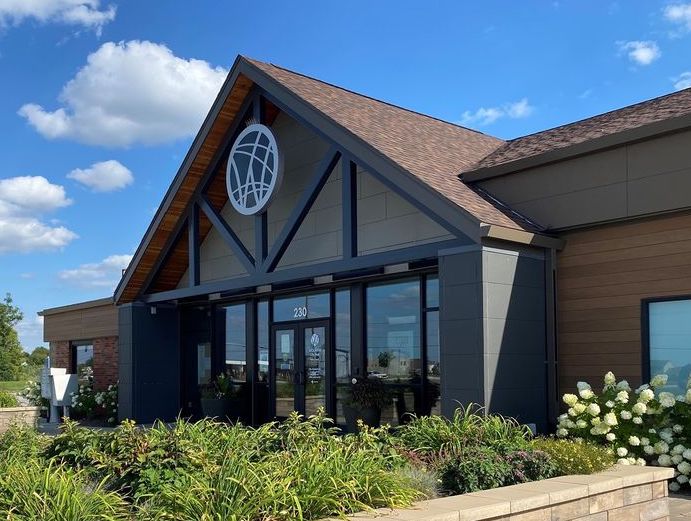Jay Waagmeester is an intern at Iowa Capital Dispatch, where this article first appeared.
The American Civil Liberties Union of Iowa says city ordinances that restrict performances by “male or female impersonators” are unconstitutional.
The ACLU of Iowa is encouraging multiple cities in the state to change zoning ordinances restricting such shows—including drag performances—at businesses. Some cities have taken action, while others remain in violation of the Constitution, according to the ACLU.
Laws in several Iowa cities require businesses featuring “male or female impersonators” to be zoned as an adult entertainment or an adult cabaret business.
Three cities in Iowa—Dyersville, Pella, and Waukee—have received notice from the ACLU advising them to alter their municipal ordinances so they avoid placing zoning restriction on businesses that feature female and male impersonators.
Dyersville Mayor Jeff Jacque says he did not hear about the letter from the ACLU until after the council met Monday. The council has not taken action on the matter yet, he said, but will review the ordinance at the council’s July 3 meeting.
Waukee City Council member Christine Crone said the city wants to make it clear that male or female impersonators are not prohibited in Waukee, and thanked the ACLU for bringing the topic to the council’s attention and allowing the city to review the language.
“The language is going to be reviewed by the staff and legal counsel for recommendations and any changes proposed will be brought to our planning and zoning commission, since this applies to zoning districts,” Crone said. “Then the recommendations will come up to the city council for final approval.”
Pella Mayor Don DeWaard said Wednesday “we need some time to formulate a response” to the ACLU’s notice, which was emailed Tuesday morning.
Laws in Pella and Waukee define “adult cabaret” as any venue that “features go-go dancers, exotic dancers, strippers, male or female impersonators or similar entertainers.”
A Dyersville city ordinance classifies an “adult entertainment cabaret” as an “establishment that is licensed to serve food and/or alcoholic beverages, which features topless dancers, strippers, male or female impersonators or similar entertainers.”
CONSTITUTIONALITY OF LAWS QUESTIONED
The ACLU letters to the cities’ council members and attorneys argue that “male and female impersonator” ordinances violate the equal protection guarantees of both the Iowa Constitution and U.S. Constitution in that they discriminate against the LGBTQ community on the basis of sex and/or gender by regulating drag performances out of existence within the city, and that they are “motivated by animus” toward the LGBTQ community.
In addition to violating a guarantee for equal protection, the ACLU argues the laws are unconstitutional for at least two other reasons: They violate free speech as an unjustifiable restriction on content, and they are so broad as to include all drag shows, regardless of whether they feature erotic or sexually explicit content, as forms of adult expression.
“There is nothing inherently obscene or even sexually explicit about ‘male or female imperson(ation)’—and nothing ‘objectionable’ about ‘male or female impersonators’—including everything from drag comedy acts to Shakespearean productions, that the youth need to be protected from,” the letter written by Shefali Aurora, staff attorney for ACLU of Iowa states. “The ordinance simply perpetuates a history of animus against the LGBTQ community as demonstrated by the pre-textual nature of the asserted motives for the ordinance. There are already laws prohibiting obscenity and this ordinance does not generally prohibit obscenity but rather targets only by LGBTQ drag performers.”
According to Loretta Stone, a New York City trained Des Moines based drag performer, there is a misconception about what drag is.
“There are so many different types of drag,” Stone said. “There’s drag like I do, which is comedy, it can be political, storytelling. Then you have queens who dance and do tricks and the death drops and the splits that you see everywhere. Some queens just like to look pretty, they like to ‘turn a look’ as we say. There are so many forms of expression when it comes to drag and I just wish people would take the slightest bit of a second to look into it.”
Venues that host adult entertainment are oftentimes restricted by zoning ordinances and are subject to additional fees. Some cities require that businesses offering adult entertainment be located a certain distance from residential areas, churches or other businesses.
If the ordinances were to be repealed or revised, businesses in those cities could host drag performances without being zoned as an adult entertainment venue.
If the cities were to exclude “male or female impersonators” from the ordinances, those drag shows that feature sexually explicit behavior would still be subject to adult entertainment zoning ordinances, the same as other performances.
In 2021, the city of Eagle Grove put a stop to a drag show when the city attorney sent a letter to a business owner hosting such performances. The letter informed the business owner she was violating a zoning ordinance by hosting an event with “prohibited adult amusement or entertainment characterized by an emphasis on sex acts or specified anatomical areas.”
The action prompted the ACLU to engage with Eagle Grove’s city council. The city has since amended its zoning law to allow sexually appropriate drag shows.
The ACLU has also been in contact with legal counsel for the cities of Knoxville, Newton, and Grinnell. The three cities have all expressed an intent to amend their ordinances, according to the ACLU of Iowa.
Editor’s note: Here are links to the ACLU of Iowa’s letters to the cities of Dyersville, Pella, and Waukee.
Disclosure: Laura Belin of Bleeding Heartland is a plaintiff in an open records lawsuit filed by the ACLU of Iowa, which has nothing to do with the topic of this article.
Top photo of Waukee city hall originally published on the city of Waukee’s Facebook page.

